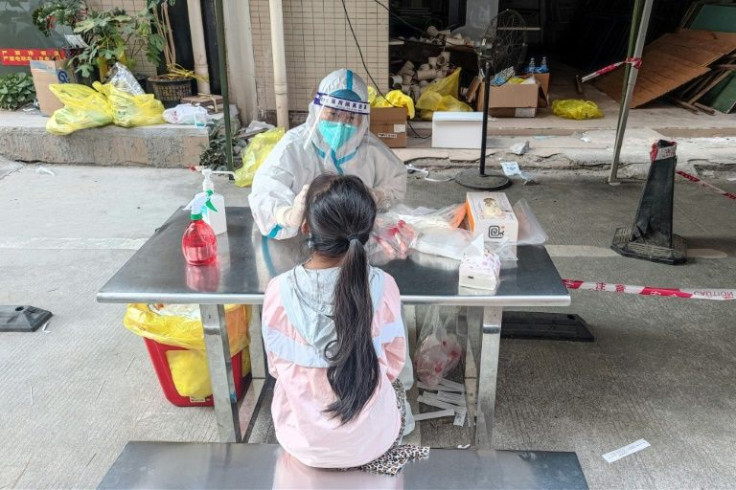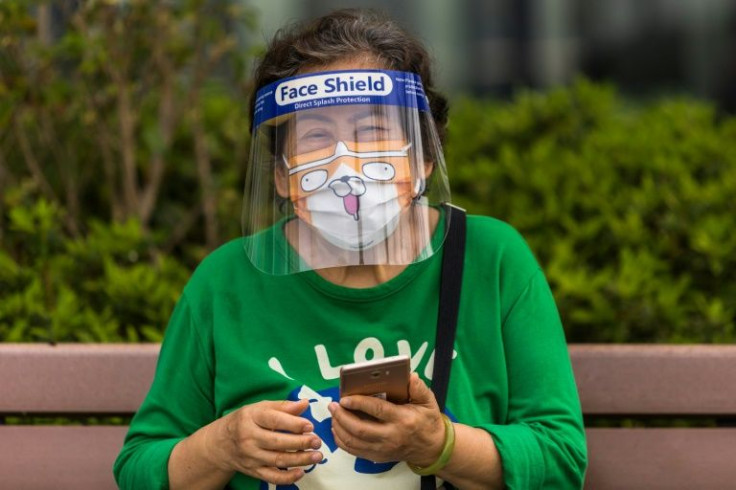Shenzhen Eases Lockdown As Pandemic Gnaws At China Economy
China's southern tech powerhouse Shenzhen has partially eased lockdown measures, after President Xi Jinping stressed the need to "minimise the impact" of the coronavirus pandemic on the nation's economy.
The city of 17.5 million, under full lockdown since Sunday, resumed work, factory operations and public transport in four districts and a special economic zone, Shenzhen's government said late Thursday.
Those areas have "achieved dynamic zero-Covid in the community", it added.
China reported 4,365 new infections nationwide Friday, according to National Health Commission data, as the country battles an Omicron surge, its worst coronavirus outbreak since early 2020.
Millions remain under lockdown across the country, many under hyper-local restrictions aimed at smothering clusters without shutting entire cities.

Officials also encouraged the use of rapid antigen tests, made available to the public for the first time last week, urging citizens to take more responsibility for their own health.
China has stuck to a zero-Covid strategy since the pandemic began, through targeted lockdowns, mass testing and travel restrictions -- an approach that has left it increasingly isolated in a world adjusting to the pandemic.
However, frequent virus shutdowns affecting major port and industrial cities have dampened the country's economic growth, leading to Beijing announcing earlier this month the weakest GDP target in decades -- 5.5 percent.
The new measures in Shenzhen were introduced to balance "epidemic prevention and control with economic and social development", said a notice from the city's virus response command centre.

Shenzhen is home to supply chains for major companies making everything from iPhones to washing machines, while some of China's biggest tech firms also have campuses around the city.
Shenzhen-based factories of iPhone manufacturer Foxconn temporarily shut earlier this week due to virus lockdowns, which triggered a major selloff of Chinese tech stocks listed in Hong Kong.
Yantian port, where a three-week closure last summer due to an outbreak exacerbated global shipping delays, is included in one of the districts where measures were relaxed.
The measures came after Xi referenced the spiralling economic costs of China's zero-Covid strategy during a Politburo meeting Thursday where he vowed to "stick to" the approach, saying "persistence is victory".
Across the border from Shenzhen, Hong Kong is recording some of the highest death rates in the world from Omicron, especially among its unvaccinated elderly people.
Health officials revealed on Friday that only 50.7 percent of people in China aged over 80 had been double-vaccinated, while just under 20 percent had received a third booster jab.
"The epidemic in Hong Kong has taught us a particularly profound lesson," said National Health Commission Vice Minister Wang Hesheng at a briefing.
"It is... an example that if the elderly vaccination rate is low, the mortality rate of severe cases will be high."
China is yet to report any deaths from the latest outbreak, with under a dozen severe cases recorded despite the rising caseload.
Wang insisted that the recent nationwide Omicron surge was caused by "imported sources from abroad" and blamed officials' "slack and numbed mindset" for some regions' lack of effectiveness in containing the outbreaks.
Officials have been sacked in areas where outbreaks have been detected, in a sign of the political imperative attached to virus controls in the world's most-populous nation.
© Copyright AFP 2024. All rights reserved.





















